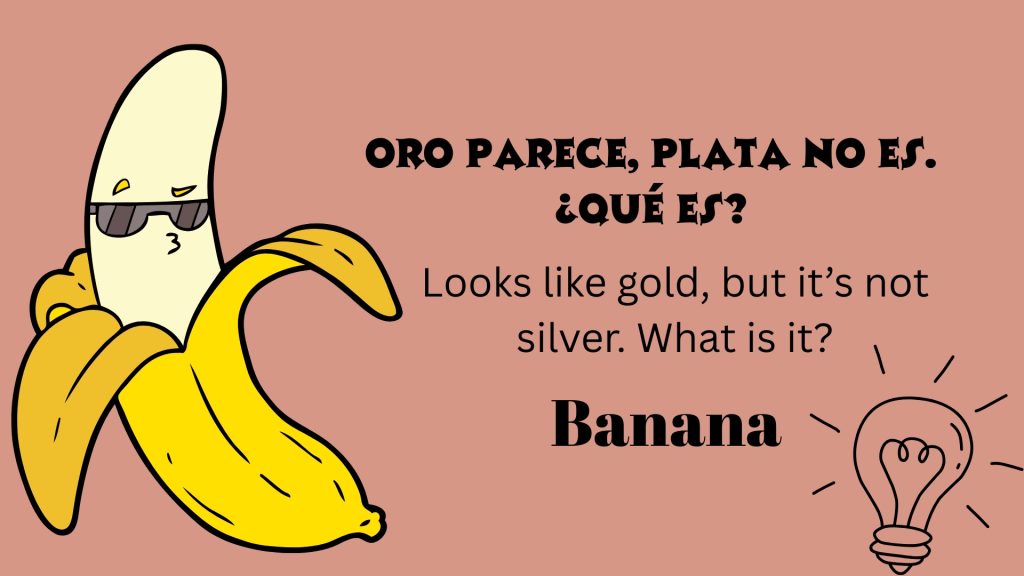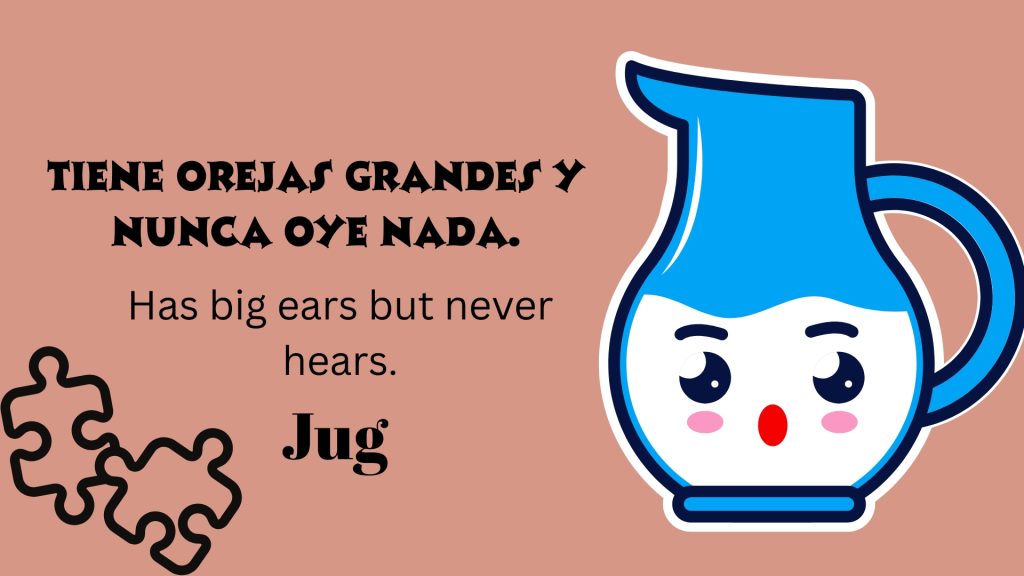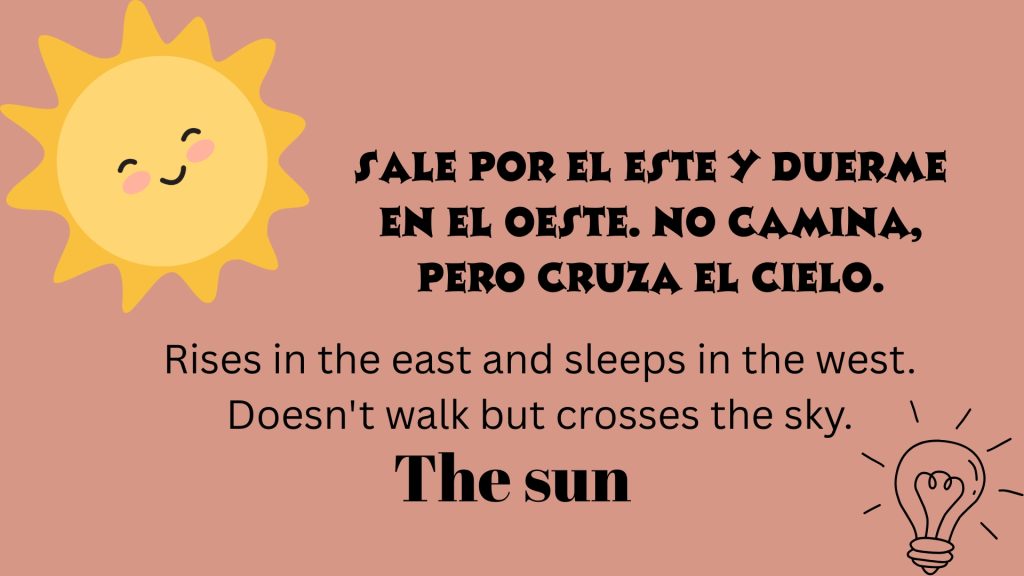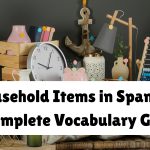You know that moment when you’re trying to actually study Spanish, but your brain would rather scroll TikTok or reorganize your snack drawer for the fifth time? Yep, we’ve all been there. Learning a new language is amazing… until the flashcards start to feel like a medieval torture device.
If you’re looking for a way to spice things up without totally ditching your vocab goals, Spanish riddles are your new secret weapon. They’re playful, tricky, and sneakily educational (shhh, don’t tell your brain).
In this post, we’re diving into the world of clever, quirky Spanish brain teasers that’ll have you thinking, laughing, and—bonus—learning. Whether you’re a total beginner or just want to flex those language muscles, we’ve got riddles that’ll make you say, “Wait, that was actually fun.”
Let’s turn study time into game time. Ready to riddle your way to fluency? ¡Vamos!
How to Solve Spanish Riddles Like a Native Speaker
Riddles test how well you know a language. But they also train your ear, stretch your brain, and push you to think in a new way. To solve them like a native, you need to go beyond words. Focus on rhythm, cultural clues, and wordplay. Spanish riddles often use double meanings and simple objects. If you slow down and think like a local, the answers will come.
Tips to Think Like a Native :
- Listen for wordplay
Spanish riddles often use words that sound alike or have double meanings. - Picture the object
Visualize what’s being described. Riddles usually refer to everyday things. - Think small
Answers are often simple and common—don’t overthink it. - Don’t translate too fast
Literal translations can throw you off. Focus on the idea, not word-for-word meaning. - Read aloud
Sound can reveal hidden clues that aren’t obvious when reading silently.
Spanish Riddles for Beginners (With English Translations)
New to Spanish? Riddles are a fun way to practice vocabulary and boost confidence. These beginner-friendly riddles use simple words and clear meanings.

You don’t need to know fancy grammar. Just read, think, and enjoy the process.
| Spanish Riddle | English Translation | Answer |
|---|---|---|
| Oro parece, plata no es. ¿Qué es? | Looks like gold, but it’s not silver. What is it? | Banana |
| Agua pasa por mi casa, cate por mi corazón. ¿Qué es? | Water runs through my house, lime through my heart. What is it? | Key |
| Blanca por dentro, verde por fuera. Si quieres que te lo diga, espera. | White inside, green outside. If you want the answer, wait. | Pear |
| Cuatro patas tiene y no puede andar. | Has four legs but cannot walk. | Table |
| No es cama ni es león, y desaparece en un rincón. | It’s not a bed or a lion, and it disappears in a corner. | Broom |
Easy and Fun Spanish Riddles for Kids and New Learners
Kids love riddles because they sound like little puzzles. These fun ones use animals, food, and objects kids know. They’re also great for new learners of any age.

Simple, playful, and full of charm.
| Spanish Riddle | English Meaning | Answer |
|---|---|---|
| Soy redondo y colorado, me comes en verano. | I’m round and red, you eat me in summer. | Watermelon |
| Vuelo sin alas, lloro sin ojos. | I fly without wings, cry without eyes. | Cloud |
| Tiene agujas pero no pincha. | Has needles but doesn’t sting. | Clock |
| Salto y salto y nunca me canso. | I jump and jump and never get tired. | Ball |
| Tiene orejas grandes y nunca oye nada. | Has big ears but never hears. | Jug (or pitcher) |
Intermediate Spanish Riddles to Sharpen Your Thinking
Ready to level up? These riddles play more with meaning and twist your thoughts a bit. Perfect for learners who already grasp basic Spanish and want a challenge. You’ll need to think in context and imagine how the words connect.
| Spanish Riddle | English Meaning | Answer |
|---|---|---|
| Cuanto más quitas, más grande se vuelve. ¿Qué es? | The more you take away, the bigger it gets. What is it? | A hole |
| Tiene dientes y no muerde, tiene cama y no duerme. | It has teeth but doesn’t bite, has a bed but doesn’t sleep. | A river |
| Siempre corre, nunca camina. Tiene boca, pero no habla. | Always runs, never walks. Has a mouth, but doesn’t speak. | A river |
| No habla, pero todo lo dice si sabes mirar. | Doesn’t speak, but says everything if you know how to look. | A mirror |
| Me ves en el agua, pero si intento tocarte, desaparezco. | You see me in water, but if I try to touch you, I disappear. | A reflection |
Also Read : Beginner’s guide to Spanish definite articles made simple.
Advanced Spanish Riddles for Fluent Speakers
Test your sharpest Spanish with these mind-bending riddles. They play with words, culture, and double meanings.

Perfect for fluent speakers who want a real challenge and a fun way to stretch their language skills.
| Riddle (Spanish) | Meaning (English) | Answer (English) |
|---|---|---|
| Siempre estoy en el medio del miedo, pero no soy peligroso. ¿Qué soy? | I’m always in the middle of fear, but I’m not dangerous. | The letter E |
| No soy flor ni perfume, pero siempre me asocian con el amor. ¿Qué soy? | I’m not a flower or a scent, but I’m always linked to love. | The heart |
| Hablo sin boca, escucho sin orejas. No tengo cuerpo, pero vivo en las palabras. ¿Qué soy? | I speak without a mouth, hear without ears. I have no body, but I live in words. | The echo |
| Entre dos muros estoy encerrada, sin ser prisionera ni ser condenada. | Between two walls I’m trapped, yet neither prisoner nor condemned. | The tongue |
| Vuelo sin alas, lloro sin ojos. Donde paso, siempre dejo huella. | I fly without wings, cry without eyes. Wherever I go, I leave a trace. | The wind |
Spanish Riddles About Animals
Explore clever riddles inspired by animals. These puzzles help you connect words with traits, habits, and quirks of the creatures we share the world with.
| Riddle (Spanish) | Meaning (English) | Answer |
|---|---|---|
| Tiene melena, pero no es persona. Ruge en la sabana y todos se asoman. | It has a mane but is not a person. Roars on the savannah, and all take notice. | The lion |
| Va despacio con su casa a cuestas. No tiene prisa, solo respuestas. | Goes slowly with its house on its back. No rush, just answers. | The snail |
| De noche sale, sus ojos brillan. Aúlla a la luna y nunca vacila. | Comes out at night, its eyes shine. Howls at the moon without fear. | The wolf |
| No tiene patas, pero da saltos. Vive en el agua y canta en charcos. | Has no legs, yet jumps. Lives in water and sings in puddles. | The frog |
| Canta al amanecer sin saber hablar. Tiene plumas y no sabe volar. | Sings at dawn without speaking. Has feathers but cannot fly. | The rooster |
Spanish Riddles About Food
Food riddles make your mouth water while teasing your brain. These tasty clues mix flavors with clever wordplay.
| Riddle | English Meaning | Answer |
|---|---|---|
| Blanco por dentro, verde por fuera. Si quieres que te lo diga, espera. | White inside, green outside. If you want me to tell you, wait. | The pear |
| Siempre estoy en la mesa, pero nunca me como. | I’m always on the table but never eaten. | The tablecloth |
| Me fríen o me hierven, soy dorado o suave. A veces duro, a veces suave. | They fry or boil me, I’m golden or soft. Sometimes hard, sometimes tender. | The egg |
Spanish Riddles About Nature and Objects
These riddles bring to life the world around us.

From rivers to clouds, chairs to keys—each puzzle hides a simple truth in plain sight.
| Riddle (Spanish) | Meaning (English) | Answer (English) |
|---|---|---|
| No tiene boca y canta. No tiene alas y vuela. Da noticias, aunque no habla. | It has no mouth yet sings. No wings, yet it flies. It gives news without speaking. | The wind |
| Tiene hojas, pero no es árbol. Tiene lomo, pero no es animal. | It has leaves but isn’t a tree. Has a spine but isn’t an animal. | The book |
| Sale por el este y duerme en el oeste. No camina, pero cruza el cielo. | Rises in the east and sleeps in the west. Doesn’t walk but crosses the sky. | The sun |
| Llora sin ojos, corre sin pies. Siempre va y nunca vuelve. | Cries without eyes, runs without feet. Always goes and never returns. | The river |
| Es blanca como la nieve y cae del cielo, pero no es hielo. | White like snow and falls from the sky, but it’s not ice. | Ash |
Classic and Traditional Spanish Riddles with Explanations
These riddles have echoed through generations. Passed down by grandparents, whispered in schoolyards, and shared over dinner. Each one carries a slice of Spanish heritage. Their charm lies in simplicity, clever wordplay, and timeless themes.
| Spanish Riddle | English Meaning | Answer |
|---|---|---|
| Oro parece, plata no es, quien no lo adivine, bien tonto es | It looks like gold, but it’s not silver. If you can’t guess, you’re a fool. | The banana |
| En el campo me crié, atado a un palo estoy, doy vueltas y vueltas, pero no me voy | I was raised in the countryside, tied to a stick I stay, spinning and spinning, but I never go. | The windmill |
| Agua pasa por mi casa, cate por mi corazón | Water runs through my house, “cate” through my heart (a pun spelling out “aguardiente”). | Strong liquor |
| Blanca por dentro, verde por fuera. Si quieres que te lo diga, espera | White inside, green outside. If you want me to tell you, wait. | The pear |
| Cuanto más le quitas, más grande es | The more you take from it, the bigger it gets. | A hole |
Spanish Riddles with Answers: Test Yourself and Learn
Stretch your brain and sharpen your Spanish. These fun riddles make learning playful and bold. Test yourself first, then check the answers.

Each one helps you connect words with meaning.
| Spanish Riddle | English Meaning | Answer |
|---|---|---|
| Tiene dientes y no muerde, guarda silencio aunque puede hablar | It has teeth but doesn’t bite, stays silent though it could talk | The comb |
| No es cama ni es león y desaparece en un rincón | It’s not a bed nor a lion but vanishes in a corner | The chameleon |
| Sube llena y baja vacía, y si no se da prisa, la sopa se enfría | It goes up full, comes down empty – The spoon | The spoon |
| Tiene agujas pero no pincha | It has needles but doesn’t prick | The clock |
| Cuatro patas tiene, respaldo también, pero no camina ni sabe correr | It has four legs, a back too, but it can’t walk or run | The chair |
Start speaking today with these must-know AR Spanish terms.
Tips for Using Spanish Riddles in Language Teaching and Practice
Riddles build memory, make classes interactive, and turn vocabulary drills into games. They work for all ages. You can tailor difficulty, spark conversation, or teach culture—all with one playful line.
How to Use Riddles in Teaching:
1. Warm-Up Game
Start class with one riddle. Let students guess in pairs. It boosts energy and focus.
2. Vocabulary Builder
Pick riddles that use new words from your lesson. After solving, review the vocabulary in context.
3. Speaking Practice
Have students make their own riddles in Spanish. Then, swap and solve in groups.
4. Listening and Comprehension
Play audio of riddles. Ask students to write down what they hear and infer the meaning.
5. Culture and Humor
Use classic riddles to explore cultural quirks, wordplay, and everyday items unique to Spanish-speaking regions.
Conclusion
And just like that, you’ve turned language learning into a game. Not bad for a few riddles, right?
Sure, Spanish can feel tricky at times (hello, verb tenses), but tossing a few clever brain teasers into the mix keeps things fresh. They make you think, smile, and sneak in new words without the usual flashcard struggle.
So whether you’re practicing solo, quizzing a friend, or trying to look impressive at your next language meetup—these riddles have your back. Keep it light, keep it curious, and keep having fun with it.
Now go out there and confuse someone (in Spanish, of course).
Stay curious, stay connected—Lingua Viva is your go-to.
Dayron is co-owner, and the heart of Lingua Viva. He is a licensed Educator and Interpreter with 15+ years of experience, and holds a graduate degree in Foreign Language Instruction. A native Caleño who creates a comfortable environment for his students. Dayron is loved by all and inspires confidence in his students when learning and speaking Spanish. He is also an avid comedian that loves to dance salsa.











